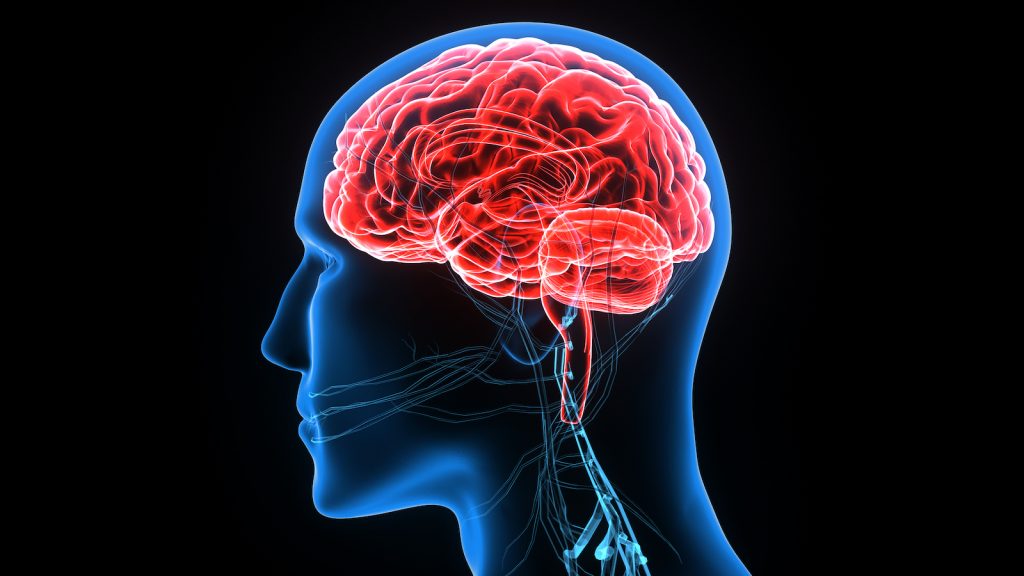
The spine and brain are connected by the spinal cord, a long bundle of nerves that carries messages between the brain and the rest of the body. The spinal cord is protected by the bones of the spine, which form a hollow tube that surrounds and protects the delicate nerve tissue. The spinal cord is divided into two main sections: the cervical spine (neck) and the lumbar spine (lower back). Each section contains a different number of vertebrae, or bones, which are stacked on top of each other. The cervical spine has seven vertebrae, while the lumbar spine has five. In between each vertebra is a small round disc that acts as a shock absorber, preventing the bones from rubbing against each other. The spinal cord runs through a series of openings in the vertebrae, known as intervertebral foramina. These openings allow messages to pass from the brain to the rest of the body. The spinal cord is also protected by a layer of tissue called the dura mater, which surrounds and supports the nerve tissues.
The spinal cord is an essential part of the nervous system, carrying messages between the brain and the rest of the body. It is protected by the bones of the spine, which form a hollow tube that surrounds and protects the cord. The spinal cord is divided into two main sections: the cervical spine (neck) and the lumbar spine (lower back). In between each vertebra is a small round disc that acts as a shock absorber. The spinal cord runs through a series of openings in the vertebrae, known as intervertebral foramina. These openings allow messages to pass from the brain to different parts of the body. The spinal cord is also surrounded by a layer of tissue called the dura mater, which helps to protect it.
The spine helps protect the brain
The spine is a column of bones that extends from the base of the skull to the pelvis. It is made up of 33 vertebrae, separated by cushions of cartilage known as intervertebral discs. The spine performs several vital functions, including supporting the weight of the upper body, protecting the spinal cord, and allowing for a full range of motion. One of its most important roles, however, is to protect the brain. The brain is protected by the bones of the skull and by a layer of cerebrospinal fluid. However, to prevent head injuries, it is essential to have a strong and flexible spine. The spine acts as a shock absorber, absorbing impact and distributing forces evenly throughout the body. As a result, a healthy spine is essential for protecting the brain from injury.
Chiropractic care can help improve brain function
Most people think of chiropractic care as a way to alleviate back and neck pain. And while it is true that chiropractic can be an effective treatment for musculoskeletal problems, recent research has shown that it can also have a positive impact on brain function. One study found that chiropractic adjustments resulted in improved blood flow to the brain, while another showed that those who received chiropractic care had reduced levels of stress hormones. Additionally, chiropractic has been shown to improve nerve function and help the brain process information more effectively. As such, it is not surprising that many people who receive regular chiropractic care report feeling more alert and clearheaded. It’s important to keep your spine healthy and seek back pain relief in Salt Lake City if you experience any back pain. If you are looking for a non-invasive way to improve your overall health, then consider making an appointment with a chiropractor today.
Other methods of improving brain function
In addition to exercise, there are several other methods that can be used to improve brain function. These include:
-Eating a healthy diet: Eating plenty of fruits, vegetables, and whole grains has been shown to improve cognitive function and protect against age-related decline.
-Getting adequate sleep: Sleep is essential for cognitive function, and research has shown that people who sleep less than 7 hours per night are more likely to experience memory problems.
-Staying mentally active: Challenging your mind with activities like puzzles, reading, and learning new skills can help to keep your brain sharp as you age.
-Managing stress: Chronic stress can damage the brain, so it is important to find ways to manage stress effectively. This may include yoga, meditation, or simple relaxation techniques.
By following these tips, you can help to keep your brain healthy and improve your cognitive function.




More Stories
The Ultimate Work Desk Kit: From Eye Drops to Vicks Roll On
Essential Insights into Atlanta Insurance: Your Ultimate Guide
Transform Lives by Giving Plasma: A Comprehensive Guide